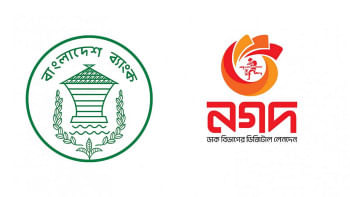30 lakh expats cross fingers
About 30 lakh expatriates are still anxiously waiting for news about getting the new machine-readable passport (MRP) as they could lose their jobs abroad and be sent home after November 24.
After the International Civil Aviation Authority (ICAO) deadline to end the use of old hand-written passports, the expatriates, mostly migrant workers, could be in a serious jam.
The government's indifference and the Malaysian outsourcing company IRIS Corporation Berhad's nonchalance would be to blame for this.
The company, in contract to enrol expatriates for the MRPs, has miserably failed to do its job. The government, instead of punishing the firm, has given it more time to sort things out, making the situation even worse.
At an advisory committee meeting on March 19, the IRIS officials promised to improve its performance within a week with daily enrolment of 9,000 expatriates in Saudi Arabia, and 5,000 in the UAE and Malaysia, meeting minutes say. It promised to finish its job by September.
More than two weeks have gone by but the company's enrolment pace remains the same, sluggish, according to officials in Bangladesh missions.
A follow-up meeting was scheduled for March 29 but the meeting had to be cancelled as Expatriates Welfare and Overseas Employment Minister Mosharraf Hossain and State Minister for Home Asaduzzaman Khan were overseas.
The follow-up meeting is now scheduled to take place at the Probashi Kalyan Bhaban this morning.
Over the last one year, IRIS gave assurances to accelerating its work but that never happened. The MRP project management did nothing to force the company to do its job.
“IRIS seems reluctant even after its commitment made last month,” an official at Bangladesh embassy in Riyadh told The Daily Star over the phone.
In Saudi Arabia, IRIS is enrolling only 1,000 migrants a day using its six application processing centres (APC), the official said preferring not to be named. The mission was enrolling around 2,000 people at its Riyadh and Jeddah offices daily.
“We can do the enrolments of all the remaining migrants before the deadline if we could ensure minimum 5,000 enrolments a day. But it is not possible now due to lack of equipment and manpower,” Mohammed Ayub, counsellor (consular service) at the embassy in Riyadh told The Daily Star over the phone.
Of the 26 lakh migrant workers in Saudi Arabia, five lakh have been enrolled while four lakh already received their MRPs, he added.
The picture in Malaysia is bleak. IRIS cannot get migrants to go to its APCs. Most of the APCs are in remote areas where expatriates refuse to go fearing they would be mugged on the way.
“IRIS could not even enrol 100 migrants a day in the last two weeks in Malaysia,” said an official in the Kuala Lumpur mission. “If the government wants to give MRPs to all migrants before the deadline, at least 58,000 need to be enrolled every month.”
Records show that the job contract winner in Malaysia, Dataedge, had enrolled 52,000 expatriates in two months before it was forced to sub-contract the job to IRIS last year. IRIS enrolled only 10,000 in seven months, since getting the job.
High Commissioner in Kuala Lumpur Shahidul Islam said the mission and the company have to work fast to meet the deadline. Of the seven lakh migrants in Malaysia, two lakh have received their MRPs as of March.
In the UAE, officials at Bangladesh embassy in Abu Dhabi said the Malaysian company is enrolling around 100 migrants a day. The mission is enrolling around 500 from Abu Dhabi and Dubai offices every day.
IRIS has eight APCs in the UAE and all of them were in remote areas, said a mission official. Of the 10 lakh migrants, around six lakh got MRPs.
Realising IRIS's poor performance, the foreign ministry took the initiative to increase enrolment capacity at its missions in Saudi Arabia, the UAE and Malaysia. But the MRP project authority is dillydallying, said foreign ministry officials.

 For all latest news, follow The Daily Star's Google News channel.
For all latest news, follow The Daily Star's Google News channel. 



Comments